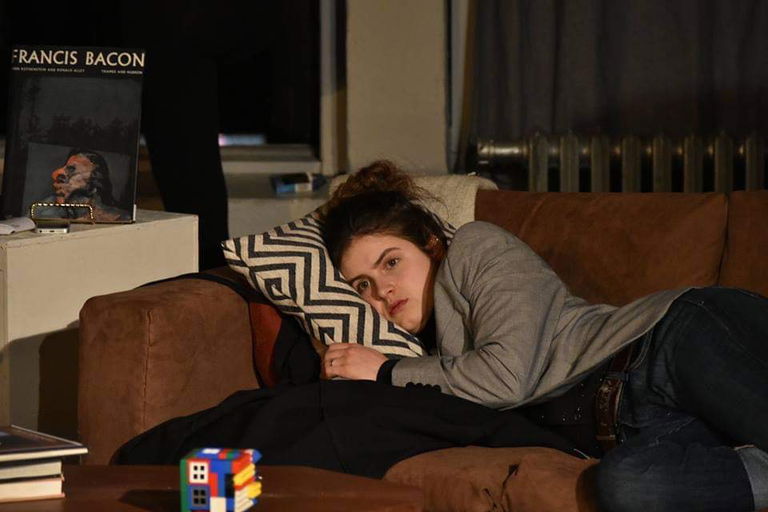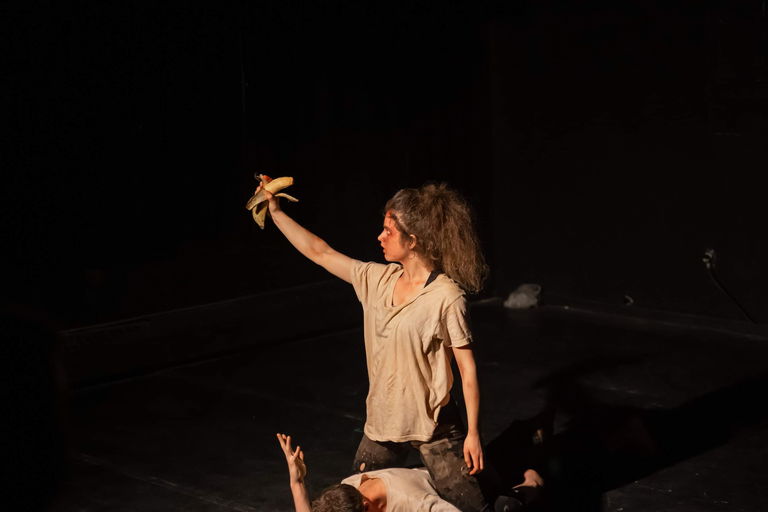
When Less is More: What Theatre Can Learn From a Year in Slow Motion
Megan Hunt for Culture Days
Jul 28, 2021
As soon as it became clear that lockdown would mean more than a two-week hiatus to slow the spread of COVID-19, an insidious little buzzword began popping up across artistic communities: innovation.
I suppose in the early days of the pandemic, innovation felt like a natural and even necessary expectation to place on artists, especially those in the theatre world. In theory, innovation meant keeping projects alive and audiences engaged, and needless to say, we have seen some truly spectacular (and accessible) work during lockdown.
However, in practice, “innovation” often boils down to a demand that artists completely re-tailor their creative practices to meet the needs of a digital age they never anticipated—with an unspoken warning that those who fail to “meet the moment” may be left behind in an already fast-paced industry. For many artists, innovation has meant responding to the physical, emotional, and financial tolls of the pandemic with less support and more labour.
As theatre begins to reopen across the country, both independent and mainstream arts institutions will almost certainly be wondering what lessons we can learn from the rare creators who found success during a turbulent time?
My perspective, however, is that if we want to produce truly innovative work post-COVID, the industry needs to learn from the rest of us—those whose pandemic experiences were defined by uncertainty, CERB payments, and an unintended pause from theatre’s unrelenting burnout culture.
For Rebecca Bauer, a Montréal-based theatre artist, the decision not to fight to “stay relevant” during the pandemic was an easy one.
“My hunch is that a lot of Canadian theatre artists don’t understand what it means to give into the process,” Bauer said.

As an emerging artist myself, her words resonated with me. I have been fortunate enough to dip my toes in multiple creative industries—theatre, film, magazine publishing—and I’ve noticed that while many artistic institutions are invested in appearing socially progressive and forward-thinking, this investment stops short of tangibly improving working conditions. Many artists find themselves expected to accept unpaid labour, balance full-time rehearsal commitments with day jobs outside the field, and the pressure to prioritize commercial viability over artistic potential. None of this feels innovative—or sustainable.
In all honesty, I understand how easy it can be for an artist (especially one just breaking into the theatre world) to accept these unfair conditions. After all, when the work you’re doing feels so important to you, isn’t it natural for the exploitation that comes with it to feel important too? Since the pandemic has started, however, some artists have noticed a shift in mentality.
According to Samantha Megarry, a Toronto-based theatre practitioner, for many of her peers, the lockdown has spurred a period of reflection. While a pandemic could never be well-timed, the beginning of lockdown was a particular blow for Megarry, who had been back at work for just nine weeks following a year she had taken to treat a cancer diagnosis. As the pandemic continued, she watched as many artists engaged with the same questions she had been asking herself the year prior.

“I think I went through the identity crisis that a lot of artists went through this past year, which is, who am I if not my job? What value do I have as a human if I am not doing this,” Megarry said, reflecting on the period after her diagnosis. “I had already learned some pretty big lessons by the time the pandemic happened.”
Megarry added that a lot of artists she knew continued to create in lockdown—just primarily for their own fulfillment, rather than an audience or employer.
Ultimately, this is one of the most important things that theatre institutions should understand as the industry reopens: no one has stopped working this year. Staying alive during a pandemic is a feat that demands constant labour of all kinds.
The fact that artists have continued to create at all is a testament to our resilience, and it should be rewarded with structural industry change.
If we are truly committed to accessible, inclusive theatre, we need to include artists who cannot work within restrictive timelines such as the three-week/three-week model. We need to re-prioritize rest, and acknowledge that in order to innovate, every artist must first have the ability to pursue a creation timeline that works for their needs.

Of course, artists cannot simply reshape these industry norms on their own. They’ll need time and money, which, as Megarry noted, has not been extended to artists nearly enough during lockdown.
“Everyone’s not in the same position. If you don’t have the privilege to wait until theatre comes back, if you have a child to feed, you might have to find a new career at this point,” Megarry pointed out. How else can we develop better, safer communities post-COVID? It’s a loaded question, but one that needs to be answered. For Bauer, it’s important enough that the next step in her creative practice is to pursue funding for professional development on the topic.
“I want to see [arts institutions] always put [artists’] mental health and wellbeing first, even at the expense of a product,” Bauer said.
Whether the industry is ready to catch up by letting us slow down is something only time will tell.
Cover image: From the production The God Of Carnage. (Stendhal X; dir. Noah Drew). Photo courtesy of Rebecca Bauer.
This article is part of a special blog series featuring writers and creatives from across Canada (and beyond!) with stories that both highlight and celebrate Culture Days’ 2021 theme, RE:IMAGINE. Explore more stories below.
- The Road Less Travelled: Three artists reimagine success and career by Linh S. Nguyễn
- Arts in Motion by Aaron Rothermund
- Reimagining Public Spaces: The Share-It-Square in Portland, Oregon by Laura Puttkamer
- Refresh: How a Year on Instagram Redefined Artistic Communities by Eva Morrison
- RE:PURPOSE by Mike Green
- Recalibrating: A Look at Opera InReach by Anya Wassenberg
- Reimagine—How the Disability Community Accesses the Arts by Rachel Marks
- Reimagining Community and the Workplace of Theatre by Natércia Napoleão
- Helm Studios flips the for-profit music model to empower artists by Aly Laube
- Curating INUA, Canada’s newest Inuit art exhibit by Carolyn B. Heller
- RE:ORCHESTRATING Our Future: Advancing Sustainable Development Through The Arts by Ryan Elliot Drew
- RE:DEFINING Normal: A Prescription for a Canadian Cultural Landscape in Recovery by Valerie Sing Turner
- Empathy Machines?: Exploring the Relationship between Immersive Art Technologies and Feeling by Jozef Spiteri and Sunita Nigam
- La poésie pour vivre différemment la pandémie par Jérôme Melançon




